- From Faith Current: “The Sacred Ordinary: St. Peter’s Church Hall” - May 1, 2023
- A brief (?) hiatus - April 22, 2023
- Something Happened - March 6, 2023
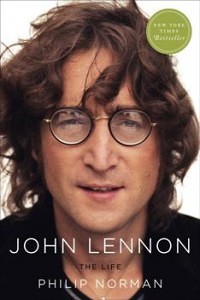
John Lennon The Life by Philip Norman
The New York Times Book Review sent Philip Norman’s new biography John Lennon: The Life to singer-songwriter Nellie McKay, and her very positive review is written in the manner of Lennon the prose stylist. Did she pull it off? I’m of two minds, myself. On the one hand, the review is a chore to get through, in a way In His Own Write and A Spaniard in the Works are not. As I read, my delight was heavily diluted by frustration. But that’s at least in part a genre problem: a book review, however creatively written, must in the end communicate information; it can’t be a pure flight of fancy (or, at least, it shouldn’t be). McKay has not shirked that duty, but deciphering what she has to say about Norman’s book is a lot more work than following the thread of one of Lennon’s nonsense stories. However, McKay also scores some remarkable successes with her wordplay, and I have to think Lennon would have been pleased by the attempt. I particularly admired the end of the penultimate paragraph (the final graf being written, mercifully, in plain English):
It shows Jo Venom, who destroyed the nice old houses, and John the Gent, willy more sentrimental than Healer Paul; a man whose instigation held friendless mirrors and who helped bring peace and joyce to a victious planet, a man stingy and cruel to those cossacks to him, mentally corchuring Cleo and offering to off his Chad, and one so medicated to being a good boy and father that he rushed each fight to put Sun to bed.
Whatever you think of McKay’s Lennon act, you have to give the NYT due credit for publishing a cryptogram only a fan(atic) could follow, much less love. And spare a thought for the poor proofreader!
On the facing page is Suzanne Vega’s review of Paul McCartney: A Life by Peter Ames Carlin. It’s not so quirky or creative — “I was one of those little girls who loved the Beatles in the 1960s” isn’t going to win any prizes for most memorable lede. But it I loved this:
….we careen from breathless fan-boy writing to dusty travelogue descriptions of Liverpool at the turn of the 20th century, while Carlin describes some immigrants flooding in and others flooding out, “departing for the untrammeled shores of the New World.”
Yawn. Why are shores always untrammeled? No one ever seems to write about how trammeled most shores actually are these days.
And this made me laugh, especially coming after a page of McKay’s gleeful punning:
[Astrid Kirchherr] is also described as an “inspiring photographer” when the context would seem to imply “aspiring photographer.”
Call it the proofreader’s revenge.

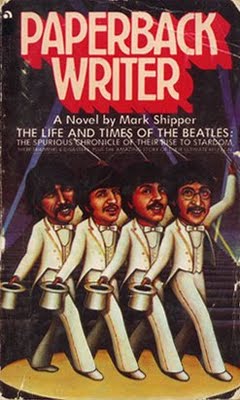

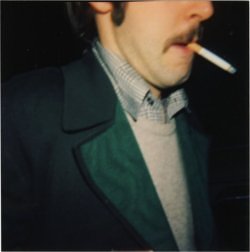
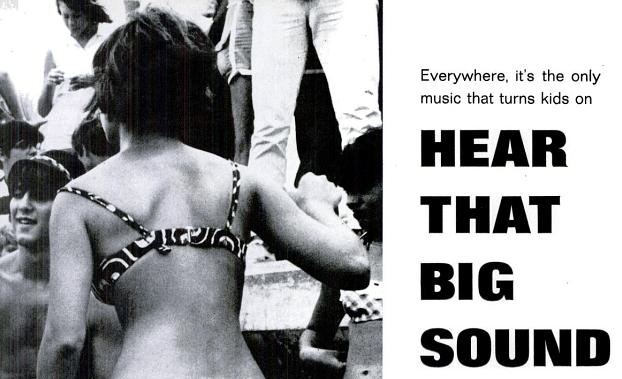
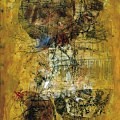






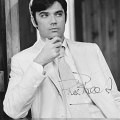
I have to say that Nellie McKay didn’t really pull it off — she makes a valiant effort, but she’s no John Lennon in the wordplay department. The chore of deciphering the content wasn’t sufficiently mitigated by delight in her puns, at least for me. It was nice that the Times reviewed both the Lennon and McCartney biographies, though.
Okay, Mollie, I was hoping to let that review pass without comment, but…The flaw wasn’t with McKay’s piece, as impenetrable as it was, but with the editorial thinking behind it.
First: Either Norman’s bio is worth commenting on–in which case it should be reviewed in a way that can impart some direction to the prospective buyer–or it’s not, and it shouldn’t take up space in the ever-shrinking NYTBR.
Second: If they were set on doing something as show-offy as that, they had to be prepared to edit it a lot more deftly than they did. This is probably impossible, given the torrent of material that passes through the newspaper.
Perhaps the proportion of gimmick to logic should’ve been reversed, with enough wordplay and punning to recall Lennon’s work, but much more transparency so that the reader could divine McKay’s actual opinion. Maybe that’s impossible; Lennon himself dismissed those books as “gobbledygook” written when he was afraid to let people know what he really thought.
Don’t get me wrong, I genuinely LIKE “In His Own Write” and “A Spaniard In the Works.” But the whole thing smacked of editors bored of the idea of yet another book on Lennon, and looking for a stunt that amused them. A much better idea would’ve been a straight review from somebody truly Lennonesque like Elvis Costello. With all due respect to Nellie McKay, that was like reading a review of a Woody Allen bio by Patton Oswalt writing in Allen’s 60s standup persona, ie impossible to do without coming off as totally contrived and kinda retarded.
As to the Macca bio, it’s a bit of a downer that it’s apparently not worth picking up. As much as I love Lennon, we know him pretty well; McCartney we don’t, any more than we know Cary Grant. That Paul does not let us see in, doesn’t mean that there’s nothing to be seen. One day McCartney will be gone, and only then will we realize what an absolute touchstone he is.
Both reviews were lovingly written, both were earnestly intended, and both sucked.
Mike, I was hoping you wouldn’t let it pass without comment. I win!
I think “amusing stunt” is exactly right. I’m not at all convinced the NYTBR needed to pay attention to either book — I’m certainly bored with the idea of another Lennon bio — and I think the gimmick of pairing up the Beatle reviews, and having both written by offbeat songwriters, was the tail that wagged the dog here. I imagine McKay’s approach struck the editors as a bonus gimmick, and they pretty much left it at that. (“You’re on your own.”)
Good editing would have done just what you suggested — lowered the proportion of wordplay so the review was actually intelligible as a review. But I expect very little from the NYTBR (even though it apparently has a lot more editors than you might suspect!), and I often find their reviews totally useless. So at least this one was novel!
Molls, I had missed both reviews — thank you for flagging ’em!
I must disagree with my esteemed dullbloggers, alas — I thought the McKay piece was a hoot and a triumph (and kind of wished the last graf and even the intro had been omitted, for purity’s sake). Another Beatle book emerges; do we really need another straitlaced “review,” a sober assessment of the facts, comparisons with past Beatles tomes, etc.?
McKay’s is a performance piece, a rigorously loopy one that succeeds on its own terms. I guess it depends on how important it is for the reader to “read a review” — this brought you (well, me) to a different place, somewhere inaccessible to a more normal critical voice.
OK please don’t eject me from the blog!
xx
Ed
The thing is, there’s plenty of room for another Lennon bio–and a good one on McCartney, Harrison and Starr–under one condition: these guys have to be really properly examined, critiqued, dissected. There seems to be some sense that, because their work has given us all such pleasure, and because it is popular, that any discussion of the people who made it has to be “nice” to them. So you get books like Coleman, which is basically the movie “Imagine” without the pictures, or the Goldman one, which goes too far in the other direction, wrapping some valid investigatory aspects in a salacious distaste for the subject.
It IS germane, for example, to try to figure out how true the whole househusband thing was from 1975-80–whether Lennon was the saintly breadbaker and nosewiper of legend, or the dissipated coke and Thai stick fiend of another legend. And it’s germane not because one legend makes us feel good about JL, and the other doesn’t, but because the conditions of his life were the major source for his work. And furthermore, because Lennon was so canny about publicity, separating reality from mythology is tremendously important if future people are to understand him at all. If he’s allowed to become a plaster saint, he will be forgotten as soon as the next version of him comes along. That’s what corporate popular culture wants, and does well. But if his story is told in all its human complexity, people will be able to see themselves in it. Only then will what he did and said and went through be able to teach us, and that’s what Lennon clearly wanted most of all. Only his ego wanted unquestioning adulation, and while his ego was immense and ravenous, it’s because there was much more to him than ego that he’s more important than, say, Mick Jagger. (No disrespect to Mick.)
These four guys–and people like them–are either worthy of historical appraisal, or they’re not. What offended me about the McKay stunt was that it, like Norman’s bio, was implicitly saying, “Because this guy is a popular icon, he doesn’t merit the full measure of analysis.” Sometimes this is a reasonable stance–I’m sure there are academic papers being written about the semiotics of Lady Gaga, and I’m not interested in them. But the scale of The Beatles’ achievement, their almost unique domination of their time, and their uncanny staying power, give them an historical significance that merits genuine analysis, without fear or favor. That’s not “being mean to John,” as Yoko said about the Norman bio, it’s giving a major figure of the postwar period his just due.
McKay’s review showed that the editors were not taking Lennon seriously, and that’s what bothered me about it. That McKay was given a “trap” idea–something that seems like it would work, but really doesn’t (unless you judge it as kindly as Ed does, not as a review but as “performance”–as if the precious column inches of the NYTBR are a Luna Lounge open-mic)–that’s no big thing. That we missed an opportunity, first with the bio and then with a review of it to really dig down and try to answer some questions about John Lennon, a guy who occupies a lot of real-estate in a lot of minds out there, that’s the shame of it. Not an earth shattering shame, but one nonetheless.
It all boils down to this: I have a relative who’s in recovery. When I told him that it appears that Lennon was addicted to every substance he tried–first booze, then pills, then pot, then acid, then heroin, and even tobacco and caffiene–he said, “Gee, and I was going to buy a photo of him, as a sort of patron saint.” I said, “But you should! He was addicted, and he struggled, and even with the weight of these addictions created so much beautiful work! He doesn’t have to be perfect to be worthwhile; and that’s the lesson he teaches!” Lennon as a man has stuff to tell us; Lennon as an icon only has stuff to sell us.
Suzanne Vega’s review of the Paul McCartney book went right to the point (that it’s a bad book), and I appreciated the review for that. As for Nellie McKay’s review: This is apparently part of a new trend over at the NYTBR. Have you seen Rick Moody’s review of the new Led Zeppelin book? The review delivers what it’s supposed to (an assessment of the qualities of the book), but not before two long paragraphs of Moody sardonically adopting a pose of an older rock fan talking to younger ones. It’s not funny, it carries no meaning, and it doesn’t work because it’s unclear exactly what kind of voice Moody is trying to imitate. I hope the NYBTR gives up this attempt at being hip, before it results in too many more irritating reviews.
That Moody review of the Led Zeppelin book really was another sucker. I cringed for Moody years ago when that snark critic what’s-his-name, oh yeah Dale Peck, called him basically the worst everything in the history of literature. That was over the top. But I have to admit that with the exception of “The Ice Storm,” everything I’ve read by Moody has set my teeth on edge.
A letter in this weekend’s NYTBR, responding to the Nellie McKay review, said very nicely something that hadn’t occurred to me:
“Nellie McKay’s idea of reviewing Philip Norman’s ‘John Lennon: The Life’ in the style of one of its subject’s punning prose works was ostensibly interesting, but like such later Lennon experimental works as ‘Two Virgins’ and ‘Life with the Lions,’ the concept is more intriguing than the actual product, and it does a critical disservice to all the work Norman put into his book. Please don’t do it again.”
As a writer who wouldn’t mind being reviewed in the Book Review someday, I would indeed feel like I’d been shafted if they gave the job to someone who was more interested in a creative writing experiment than dealing seriously and intelligibly with what I’d labored to present.